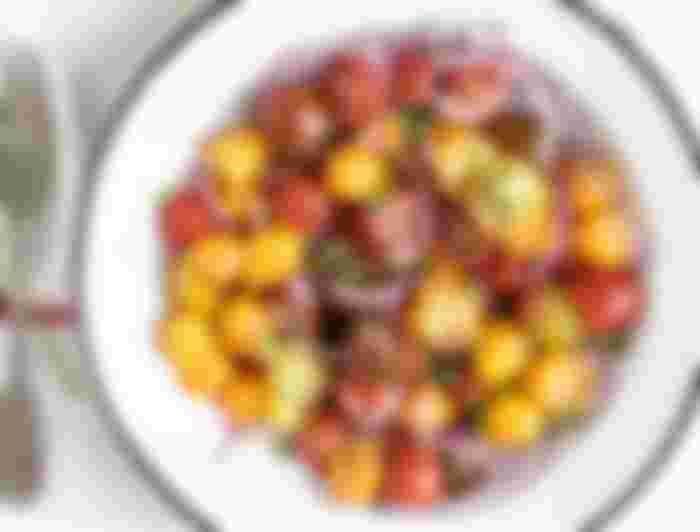Start Plant-Based Diet
A plant-based diet offers several advantages for gut health, improving physical and mental well-being. Recent studies have demonstrated that a plant-based diet increases the variety of gut flora, which enhances microbiome function. The adult body then experiences a wide range of neurochemical and hormonal changes, which impacts one's physical, mental, and emotional health. Considering that the body breaks down and absorbs plant-based protein at a far more even rate than animal-based protein, it is also digested more effectively.

Vegetarian Food
A vegetarian diet excludes meat but frequently includes dairy items like cheese and eggs. Carl Lewis, Ricky Williams, and Joe Namath are a few well-known vegetarians.
Vegan food
Meat, dairy, eggs, and other products produced from animals are not permitted in a vegan diet. Athletes like ultramarathon runner Scott Jurek and tennis star Martina Navratilova, as well as well-known figures like former heavyweight boxing champion Mike Tyson, are famous vegans.
Pescatarian food
A vegetarian diet that also incorporates seafood is known as a pescatarian diet. Although most pescatarians are vegetarians, they still include fish and other seafood in their diets. A few well-known pescatarians are ultra-marathoner Reylynne Dela Paz, MMA fighter Kron Gracie, and NFL star Tony Gonzalez.
Flexitarian plan
A flexitarian diet is a balanced eating plan that mostly emphasizes plant-based meals while occasionally permitting meat and other animal items. Many well-known sportsmen, such as American football quarterback Tom Brady, UFC fighter John Cholish, and British celebrity chef Jamie Oliver, adhere to a flexitarian diet.

Start
Famous fashion designer Stella McCartney came up with the concept of "Meat-free Mondays" to inspire people to try going without meat at least one day a week. As a result, the carbon footprint associated with producing food is reduced, which is good for the environment (usually, animal-based foods require more energy to create, meaning their carbon footprint is higher). Additionally, occasionally eating vegetarian meals is healthier for your health.
Small modifications at first will help us gradually adjust to the new way of life. For instance, if you want to eat a salad every day, you need to know where to get fresh veggies and develop the practice of chopping them up before meals. Consider what you'll replace it with, where you'll buy better food, how much you'll spend, and how you'll cook it before giving up junk food for a month.
Make a strategy for your new diet change and lifestyle.
Psychologists claim that when our behaviors and intentions are at odds, we feel mentally and psychologically uncomfortable. It might be challenging to carry out our plans once we experience this cognitive dissonance, but there are methods to get through it.
We need to make the change we wish to see as simple as possible. That requires some forward preparation. We can make the process considerably smoother and improve our chances of success by giving the actions we need to take considerable thought.
Make a strategy for how you will get your new dietary requirements and decide when you will begin your new nutritional lifestyle. Think about whether you need to learn any new abilities, such as how to cook or prepare food that you wouldn't ordinarily use. Make sure the scope of your change is something you can handle since too much change might be challenging to maintain.
It's crucial to keep dietary changes to a minimum and at a controllable scale. Avoid trying to make drastic changes all at once since it will be stressful and difficult to maintain. Additionally, remember that food has an impact on our mood and energy levels on a mental level. Instead of only concentrating on the physical advantages, adopt adjustments that will improve both your physical and emotional well-being. Finally, while making dietary decisions, consider social variables like peer pressure. It's crucial to plan how you'll manage dining with people who might not be on the same diet because we don't always eat alone.
Beginning Plan for Beginners
1. Begin by including well-known items that you and your family are sure to like. Use a different grain if someone doesn't like one type. Everyone can find something to enjoy in this way.
2. Plan your dinner to include a salad. The best method to obtain a lot of nutrients in one meal is by eating a large salad.
3. Choose whole-grain alternatives such as oats, quinoa, whole-wheat bread, and whole-grain pasta. All of these whole grains are filling and provide you with enduring energy throughout the day.
4. Remember to include protein in your meal! Great additions to a grain bowl include chicken, fish, beans, or tofu.
Quick recap
Only if you're ready can you successfully switch to a plant-based diet. Just like your current diet didn't appear suddenly, getting to where you are today required some time and forethought. You need to learn new skills and develop new strategies when making the switch to a more plant-based diet. If you do this incrementally, you'll find that it's not as hard as you think it might be.


Thank you for sharing this healthy tips 🤗🤗